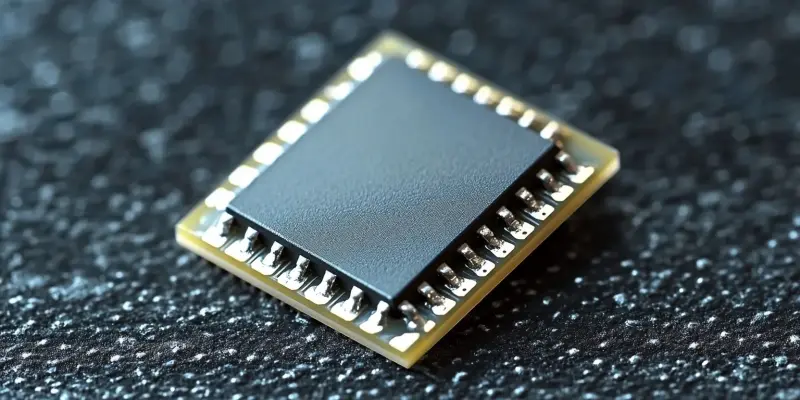The impending trial between chip giants Qualcomm and Arm over licensing rights and chip technology has garnered immense attention in the tech industry. This legal conflict, unfolding in a Delaware courtroom, comes shortly after Arm canceled Qualcomm’s license in October, intensifying the already existing tensions. The trial has allocated approximately 11 hours for each side to present their case by Friday, beginning with opening arguments on Monday. Key industry players, including Arm CEO Rene Haas, Qualcomm CEO Cristiano Amon, and Qualcomm Vice President Gerard Williams, who founded AI chip startup Nuvia in 2019, are set to testify.
The Core Dispute
Qualcomm’s Acquisition of Nuvia
At the heart of this legal battle is the acquisition of Nuvia by Qualcomm in 2021 for $1.4 billion, and whether this acquisition necessitates a renegotiation of existing agreements with Arm to use Nuvia’s chip designs. Qualcomm asserts that its current licensing rights with Arm cover Nuvia’s technology, which the company is leveraging to develop its new AI processors for PCs. These AI processors were unveiled earlier this year and are expected to play a crucial role in supporting Microsoft’s and PC manufacturers’ strategies to compete with Apple’s M-series processors, which have set new benchmarks in the industry.
Qualcomm’s stance is firmly rooted in the belief that its existing licensing agreements with Arm encompass the rights to Nuvia’s technology. The company has emphasized that Nuvia’s designs are integral to the next generation of its AI processors, which could revolutionize the PC market. The implications of these processors are vast, potentially allowing Qualcomm to capture a significant portion of a market traditionally dominated by Intel and AMD. Moreover, successful integration of Nuvia’s technology could further strengthen Qualcomm’s position in the smartphone and automotive processor markets.
Arm’s Counter Argument
On the other hand, Arm argues that new licensing terms are necessary for Qualcomm to use Nuvia’s designs post-acquisition. Arm maintains that the existing agreements cannot simply be extended to cover the new technology without renegotiation. The company is pushing for Qualcomm to enter into a new licensing agreement, rather than continuing under the terms established before the acquisition of Nuvia. As part of this legal confrontation, Arm has taken an aggressive stance, demanding that Qualcomm destroy the Nuvia-based chip designs if the court rules in its favor, rather than seeking monetary damages.
Arm’s position stems from the viewpoint that extending existing licenses to cover Nuvia’s technology without renegotiation could set a disruptive precedent in the industry. They contend that such actions would undermine the integrity of intellectual property agreements and create a loophole for other companies to exploit in future acquisitions. Arm’s demand for the destruction of the chip designs underscores the high stakes involved in this trial, highlighting the significant impact that a ruling in its favor could have.
Implications for the Future
Potential Market Disruption
The outcome of this trial carries significant implications for both companies and the broader tech industry. For Qualcomm, a court ruling in favor of Arm could jeopardize its expansion into the PC market, which is a critical part of its growth strategy. The disputed technology forms the backbone of Qualcomm’s latest Snapdragon processors, which are used not only in laptops but also in smartphones and automotive applications. A requirement to destroy these designs would force Qualcomm back to the drawing board, potentially delaying its entry into the highly competitive PC processor market and giving competitors like Intel and AMD a considerable advantage.
The trial’s verdict could also ripple through Qualcomm’s smartphone processor business, a key revenue driver for the company. It could disrupt product development timelines and result in significant financial losses. For Qualcomm, this would mean not only a setback in its PC ambitions but also a potential weakening of its position in the smartphone market, where staying ahead in the technology curve is crucial. The stakes are equally high for Arm, whose license cancellation strategy could end up backfiring if the court rules in favor of Qualcomm.
Strategic Considerations
The upcoming trial between chip giants Qualcomm and Arm over licensing rights and chip technology is drawing significant attention in the tech world. This legal battle, set to take place in a Delaware courtroom, follows Arm’s cancellation of Qualcomm’s license in October, exacerbating already high tensions between the two companies. Both sides have been allotted about 11 hours each to present their respective cases, with opening statements scheduled to begin on Monday and the proceedings wrapping up by Friday.
The trial will see testimonies from key industry figures, such as Arm CEO Rene Haas, Qualcomm CEO Cristiano Amon, and Qualcomm Vice President Gerard Williams, who is notable for founding the AI chip startup Nuvia in 2019. The outcome of this high-stakes legal confrontation could have far-reaching implications for the semiconductor industry and is being closely monitored by industry insiders. The dispute underscores the complexities and competitive nature of licensing agreements in the tech sector, a crucial component for innovation and market leadership in the chip industry.

